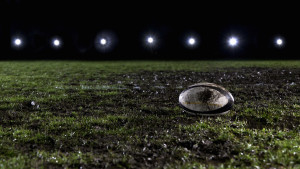 Jannie du Plessis was bang on the money last Saturday.
Jannie du Plessis was bang on the money last Saturday.
Speaking in the aftermath of the ferocious Springbok match against the All Blacks, he waxed philosophical: “When they say you’re good, you’re not as good as they say – and when they say you’re shit you’re not as shit as they say!”
He was referring to himself after weeks of enduring quiet whispers about his form and fitness. Yet he might have been talking about the Boks, who are caught in that twilight zone, in the public consciousness at least, between being good and perhaps not very good.
The one thing that is palpably dangerous is being satisfied with a brave, heroic defeat, but a defeat nonetheless. It says something about our psyche that we took the path of highlighting the positives rather than going into mourning for losing to the All Blacks. That’s how it used to be, when defeats were only ever ugly, sombre affairs.
We’ve dropped our standards in recent years – 15 wins out of 52 Tests against the All Blacks since readmission – and mostly resort to a shrug of the shoulders.
It’s not a good look.
South Africa’s chief failing remains one that has hobbled them in recent years: wasted chances. It’s not enough to aspire to an extravagant game, and occasionally produce one, without providing a flourish. You could often see at Ellis Park how the team produced opportunities only to be frozen by uncertainty. They had their foot on the throats of the All Blacks, only to release the pressure.
It’s like a dog that chases a car and doesn’t know what to do when it finally catches up.
Such weakness matters little against Scotland or Samoa, but elite teams like Australia and New Zealand present few chances. You can’t afford to show frailty. If you do, they will savage you.
The difference between the Boks, as world number two, and the world champion All Blacks, is how they back themselves. They never panic and have enormous reserves of self-belief. They soak up pressure and exert it themselves, always confident that they will find a way. Any way, as we saw with Richie McCaw’s cocky try that spoke of their swagger and innovation. They’re always daring, always different.
Was it legal or not? It doesn’t matter. The score is in the book. Chalk it up to All Black cunning.
 Easily the best feature of the Boks is their hard physical edge. Watching closely from the sidelines, it was staggering to see how brutal players like Schalk Burger and Bismarck du Plessis are. Big men, they throw themselves about and smash into players constantly. I’ve seen car crashes that were less violent. Too bad the Boks ran out of gas towards the end; a worrying reality.
Easily the best feature of the Boks is their hard physical edge. Watching closely from the sidelines, it was staggering to see how brutal players like Schalk Burger and Bismarck du Plessis are. Big men, they throw themselves about and smash into players constantly. I’ve seen car crashes that were less violent. Too bad the Boks ran out of gas towards the end; a worrying reality.
Last week’s game was of an incredibly high standard and it was obvious the Boks are trying to broaden their game. Many of their best moves were inspired by Damian De Allende and Jesse Kriel providing punch and panache in the midfield. It was a combination that came together through accident rather than by design and it looks outstanding. Quite how, or where, Jean de Villiers fits in will be a major problem for Heyneke Meyer to ponder. Maybe De Allende could switch to wing.
There were other small victories. Lood de Jager was compelling. He’s a real giraffe of a man; busy, bustling, bruising. Francois Louw remains the quiet, sinister assassin and Willie le Roux has shaken off his self-doubt. When his instincts are tuned in, he’s as lethal as Ben Smith and Israel Folau.
The one thing we should get used to is the certainty that the Boks will not be at full strength come the World Cup. But neither will the other big guns.
Injury has visited all the major teams and it will be touch and go whether some top players get on the plane. Such is the nature of the modern game with its enduring fixture list and violent physical cost.
Although Argentina lie in wait, the Boks can take heart from Du Plessis’ homespun wisdom. They are there or thereabouts. With a little tinkering and greater conviction, they might even scare the All Blacks. – © Sunday Tribune

